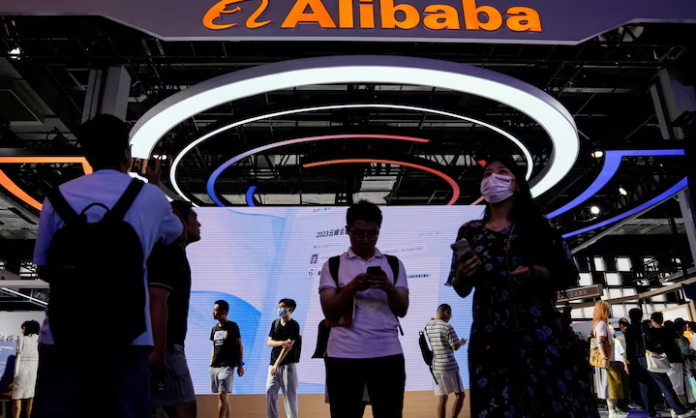On January 29, 2025, Chinese tech giant Alibaba unveiled its latest artificial intelligence model, Qwen 2.5-Max, claiming it surpasses notable competitors like DeepSeek-V3, GPT-4o, and Llama-3.1-405B. This announcement, made during the Lunar New Year celebrations—a period when most in China are on holiday—highlights the intensifying competition in the AI sector.
DeepSeek, a Chinese AI startup, has recently disrupted the industry with its AI assistant powered by the DeepSeek-V3 model, launched on January 10, 2025. This release, followed by the R1 model on January 20, has garnered significant attention in Silicon Valley. DeepSeek’s models are praised for their advanced capabilities and cost-effective development, prompting U.S. tech firms to reassess their substantial AI investments.
In response to DeepSeek’s rapid ascent, domestic competitors in China are accelerating their AI advancements. Just two days after DeepSeek introduced the R1 model, ByteDance, the parent company of TikTok, released an update to its flagship AI model. ByteDance claims this update outperforms Microsoft-backed OpenAI’s o1 in AIME, a benchmark assessing AI models’ comprehension and response to complex instructions.
The predecessor to DeepSeek’s V3 model, DeepSeek-V2, initiated a price war in China’s AI market upon its release in May 2024. Its open-source nature and affordability—priced at just 1 yuan ($0.14) per 1 million tokens—compelled Alibaba’s cloud division to announce price reductions of up to 97% across various models. Following suit, other Chinese tech giants, including Baidu and Tencent, have also adjusted their pricing strategies.

Liang Wenfeng, the elusive founder of DeepSeek, emphasized in a July interview that the startup prioritizes achieving artificial general intelligence (AGI) over engaging in price wars. AGI refers to autonomous systems that can outperform humans in most economically valuable tasks.
Liang expressed skepticism about large tech companies’ ability to lead in the evolving AI landscape, contrasting their high operational costs and hierarchical structures with DeepSeek’s lean and flexible approach.
While established tech conglomerates like Alibaba employ vast workforces, DeepSeek operates more like a research lab, staffed primarily by young graduates and doctoral students from top Chinese universities.
Liang believes that continuous innovation is essential for developing large foundational models and suggests that tech giants may face limitations in this regard.
Alibaba’s release of Qwen 2.5-Max signifies a strategic move to reclaim its position in the competitive AI market. As the race to develop more advanced and efficient AI models intensifies, both established corporations and nimble startups like DeepSeek are pushing the boundaries of technology, each aiming to lead the next wave of AI innovation.



